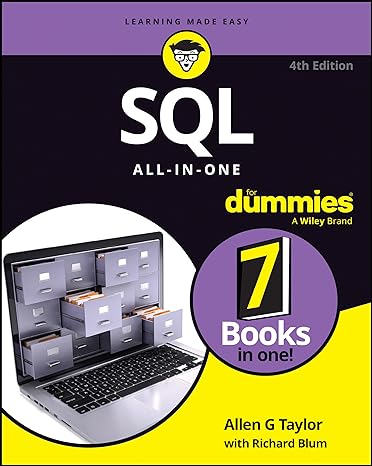Question
public class TestSum { public static void main(String[] args){ int a = 10; int b = 20; int total = calcSum(a, b); System.out.println(the total is
public class TestSum {
public static void main(String[] args){
int a = 10;
int b = 20;
int total = calcSum(a, b);
System.out.println("the total is " + total);
}
public static int calcSum(int x, int y){
int result;
result = x + y; return result;
}
}
, then answer the questions below :
What are the names of the formal parameters for method calcSum?
What are the names of the actual parameters for method calcSum?
Do you find formal parameters in method definition or in method invocation?
Do you find actual parameters in method definition or in method invocation?
What is the method signature of method calcSum?
What is the method header of method calcSum?
Does the method signature include the return type?
Does the method header include the return type?
If the method signature in the invocation does not match the method signature in the definition, will the program compile?
Can the formal parameters have the same name as the actual parameters?
In the above code, what is the first method pushed into the stack, main method or calcSum method?
In the above code, what is the first method pop out of the stack, main method or calcSum method?
Are the values passed from actual parameters to formal parameters, or from formal parameters to actual parameters?
When the value of primitive type variables is passed, will the change of the formal parameters affect the actual parameters? Hint: pass-by-value is a one-way passing.
What is the definition of pass-by-value?
Step by Step Solution
There are 3 Steps involved in it
Step: 1

Get Instant Access to Expert-Tailored Solutions
See step-by-step solutions with expert insights and AI powered tools for academic success
Step: 2

Step: 3

Ace Your Homework with AI
Get the answers you need in no time with our AI-driven, step-by-step assistance
Get Started


